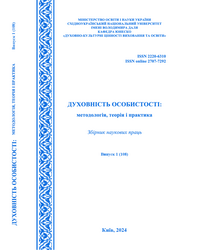PECULIARITIES OF STUDYING THE COURSE “FUNDAMENTALS OF SOCIAL STATISTICS” BY STUDENTS OF SPECIALTY 232 “SOCIAL SECURITY”
DOI:
https://doi.org/10.33216/2220-6310/2024-108-1-261-268Keywords:
social statistics, social security, social sector managers, academic discipline, fundamentals of social statisticsAbstract
The paper reveals the peculiarities of teaching the course “Fundamentals of Social Statistics” to students of specialty 232 “Social Security”. The article not only highlights the problem of insufficient methodical training of future specialists in this field, but also points out the ways to optimize the educational process focused on increasing the effectiveness of their further professional activities. In addition, the interconnections between social statistics and social security have been revealed. The key concepts and methods applied in the social security sector are identified, namely, collection of social data, descriptive statistics, inferential statistics, correlation analysis, and regression analysis. Additionally, the authors analyze the educational program “Social Security” for students of the first (bachelor's) level of higher education in specialty 232 “Social Security” and, in accordance with the course “Fundamentals of Social Statistics”, define general, special competencies, and the program learning outcomes. Besides, the article analyzes the main difficulties faced by higher education students in studying this course, in particular the complexity of the material, the need to understand mathematical methods, and other aspects of social statistics. In addition, some possible ways to improve the studying of this course, including the use of interactive teaching methods and modern technologies, are considered. The article highlights the current problems of studying social statistics and suggests some ways to solve them, taking into account the specifics of training specialists in the field of social security, providing specific recommendations for improving the educational process.

